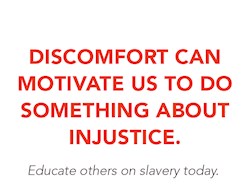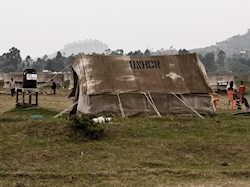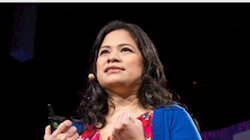January is human trafficking awareness month in the United States. Acknowledging this, I want people to understand how human trafficking requires mind control.
In order to understand what this means we need, first of all, to know what the mind is, what it means to control something, and what it means for one person’s mind to be controlled by another person. While these seem like simple concepts, they are actually quite complicated. In fact, we still don't quite understand what the mind is. About 15 years ago, Daniel Siegel and some colleagues attempted to define the phrase “mental health”. His question: what exactly is the “mental” part of “mental health”? In other words, what is the mind? His conclusion, after working with people across a variety of disciplines, was that the mind is “…a process that regulates the flow of energy and information” (Siegel, 2006). Our minds deal with information from inside and outside of our bodies. A lot of mental processes occur without us being consciously aware of them.
Control is a verb which describes the exercise of a power over someone or something. Control isn’t always a bad thing. I enjoy playing soccer, and keeping control of the ball is actually an objective of each player and each team. This analogy, however, allows us to understand what it means to control other people. When I control a soccer ball, I manipulate it, tell it what to do, keep it in my possession, and pass it to the people to whom I want to pass it. Unfortunately, mind control works in similar ways. A person can do things in order to manipulate others’ minds so that they can treat others like possessions. If a mind is a process, mind control seeks to control another person’s process of regulating the flow of energy and information. The tricky thing is this: is how does someone control another person? Control, as an exercise of power, requires a power differential.
One example is that of an adult-child relationship. There is an inherent power difference between adults and children. This power is very often misused and abused. Adults can control children very easily, especially if those children are dependent on the adults for safety, love, food, etc.
Power differences between adults can be established in a variety of ways, such as brute force and violence, humiliation, shaming, threats, and so much more. In addition, power dynamics can be created in adult relationships that are similar to parent-child relationships. Adults who are dependent on other adults for food, shelter, or safety, can be vulnerable to exploitation and abuse.
It is important to note that normal communication among free and equal adults one person cannot control the mind of another. For example, someone tells you that you should like apples but you hate apples. This does not mean that the other person is manipulating you and forcing you to like apples. The other person does not control you just by stating that you should like apples. On the other hand, if this person force fed you apples, beat you, and raped you until you said you liked apples, then that would be considered control. As a result of the control, you might even come to believe that you like apples. You might walk around and say how much you love apples and how stupid you were to not like them. You might even say you deserved to be violated because you needed to be taught a lesson. All of these statements might seem silly when applied to apples, but they are not far from the truth.
Human trafficking, slavery, is not just about controlling someone’s body, their time, or their sexual behavior. Modern forms of slavery require that a human being can be put into a situation where their life depends on submitting to the domination of another person. In order to submit to violence and threat, the human mind must do a lot of mental gymnastics in order to convince itself that it is not under threat and therefore that it should not revolt. If the mind assesses that a revolt is not likely to succeed, it may deploy temporary defenses, until a later escape or rebellion is possible. If the temporary defenses become used over longer and longer periods of time, they become more rigid and more permanent.
Why is this important for our work to end slavery? Because we need to understand that in the context of the threat of death or severe injury, human beings will do whatever it takes to survive. Their minds will do this, even under their own conscious awareness. Slaves will take on the beliefs of their slave masters – “I’m stupid. I deserve this. I should have known better. I like sex. I am choosing to do this. They love me. I should be grateful”….and on and on. These might be the symptoms we see, the statements we hear, and the beliefs that we must challenge during the healing process. But remember, these beliefs and thoughts were created to keep that person alive. So even if a survivor is now safe and sound, their minds associate “I enjoy sex” with “I will live to see tomorrow.” The things that we think, or thought, saved our lives, are the things we will cling to even if they are no longer true.
One horrendous consequence of mind control, as you can imagine, is that survivors, once out of slavery, start to think and feel like they are “losing their mind.” What are my thoughts and beliefs? Do I really like that? Wait, but everything I knew about the world is totally wrong. But it was all I knew. How do I trust anything else?
Slavery requires that people lose trust in themselves. If they can’t trust their own mind, their own capacities to defend themselves, to care for themselves, or to be autonomous people; they will sink into roles of dependency and, worse yet, feel helpless and hopeless. It requires that people lose their sense of identity. Slavery requires that people believe they are slaves, rather than treated as if they are slaves. Thus, as we continue to fight slavery, we need to ask: what leads people to believe they are slaves? No one comes to that belief on their own.
Topics:
Awareness,
Sex Trafficking,
Forced Labor












